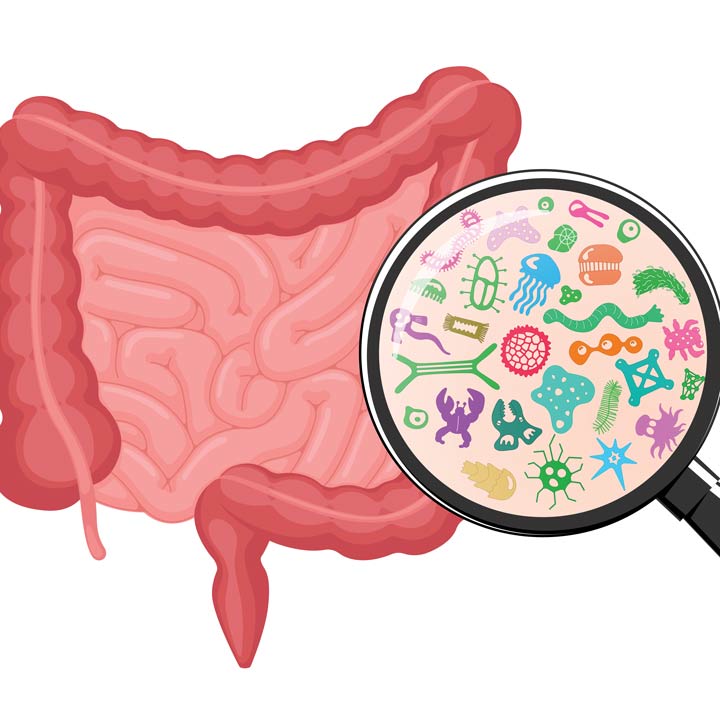
Researchers combine nanobiotechnology, neutrophils and nucleic acid to combat lupus
 The medical community has long implicated gut microbiota as a factor in inflammation and immune activity. However, to help patients with rheumatoid arthritis (RA), it’s crucial to understand why microorganisms in the gut impact inflammation located outside of the gut, specifically in the joints.
The medical community has long implicated gut microbiota as a factor in inflammation and immune activity. However, to help patients with rheumatoid arthritis (RA), it’s crucial to understand why microorganisms in the gut impact inflammation located outside of the gut, specifically in the joints.
For more than a decade, Joyce Wu, PhD, BVM, professor of Internal Medicine in the Ohio State College of Medicine and the Ronald L. Whisler, MD, Endowed Chair in the Division of Rheumatology and Immunology at the Ohio State Wexner Medical Center, has explored this process and developed new insights.
“We know that gut microbiota can induce a healthy immune response, but in genetically susceptible individuals, the gut microbiota-mediated immune response can pose a high risk for autoimmune disease,” Dr. Wu says. “It’s also been reported that gut microbiota affects certain T cell subtypes, including T helper 1 (Th1), Th17 and regulatory T cells.
“As patients with RA often display increased humoral immunity in relation to disease severity, we are particularly interested in how or which commensals impact T follicular helper (Tfh) cells, the T helper cell type essential for humoral immune responses.”
In her first research phase, Dr. Wu established a new and more physiologically relevant platform to study the connection between gut microbiota and an overactive immune response by introducing segmented filamentous bacteria (SFB) into specific-pathogen-free K/BxN mice with autoimmune arthritis, whose disease mechanism relies on Tfh cells and auto-Abs. The adult K/BxN transgenic mouse was used because it develops spontaneous autoimmune arthritis with joint remodeling and profound bone loss.
To accomplish this, Dr. Wu photoconverted with a laser the transgenic gut Peyer’s patch (PP) Tfh cells originally expressing green color to red. This allowed Dr. Wu’s team members to track the migration of these cells.
“Just three days after this surgery, we were able to discover that the red cells had traveled to the spleen,” she says. “To our knowledge, this is the first data to associate a specific commensal bacteria type with the migration of Tfh cells. Because PP depletion causes the reduction of splenic Tfh cells and arthritis, this led us to conclude that gut microbiota-induced migration of Tfh cells is critical for the development of gut-distal autoimmune disease.
“Importantly, our latest data also indicates significant and broad application across autoimmune diseases, as the Tfh/GC-enhancing effect of SFB found in the K/BxN model can also be demonstrated in NZB/NZW F1 mice, a natural and spontaneous lupus model.”
“Our data shows that the gut-derived Tfh cells are enriched with interleukin-17 expressing Tfh-like cells, a rare and interesting cell type with characteristics of both Th17 and Tfh cell,” Dr. Wu says. “We hypothesize that microbiota promote the conversion of Th17 into Tfh cells in PPs, which enhances autoimmune arthritis.”
Dr. Wu’s research is novel because it focuses on mucosal immunity and its link to autoimmunity. “We want to discover if targeting these problematic cells from the gut can lead to the reduction of the joint disease,” she says.
Dr. Wu’s research team has been examining the presence of Th17-like Tfh cells in the peripheral blood and other tissue from patients with rheumatoid arthritis to extend their findings in the mouse models to patients’ data. “We are grateful for our patients with rheumatoid arthritis who have been eager to help with this research,” she says.
“The goal for phase 3 of our research will be to better understand the exact ways gut-derived Tfh cells help B-cells to mount humoral immune responses so we can develop targeted therapies to interrupt this process.”